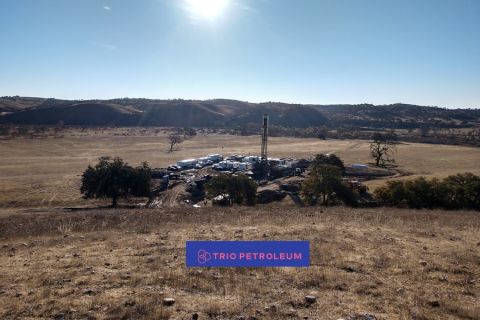Learn more about Hart Energy Conferences
Get our latest conference schedules, updates and insights straight to your inbox.
The use of commercial fracking in Colombia could boost oil and gas reserves by between 12 and 15 years, majority state-owned oil producer Ecopetrol said on May 5, adding it expects a ruling on the suspended environmental license for a fracking pilot project to come in June.
Supporters of hydraulic fracturing - also known as fracking - say its output is key to shoring up Colombia's energy self-sufficiency, which counts on less than seven years of reserves, while opponents warn of pollution and decry threats against environmentalists.
The country's top administrative court has permitted investigative pilot projects by Ecopetrol and partner Exxon Mobil Corp. to go ahead while it weighs whether to allow commercial development.
The national environmental regulator issued a license for the Kale pilot project in March but a judge later ordered it suspended on grounds that local communities were not properly consulted.
The ruling, which was appealed by Ecopetrol, also ordered that a local Afro-Colombian group be consulted on the Platero pilot project.
"In accordance with Colombian regulations we expect this second ruling to come more or less in the first week of June," Catalina Velasquez, Ecopetrol's external affairs manager, told Reuters on the sidelines of a discussion about fracking pilot projects.
If the pilot projects lead to commercial fracking, Ecopetrol could develop 150 to 200 fracking wells in the Magdalena Medio region, the company's vice president of non-conventional energy deposits Gabriel Combariza, told journalists.
Characteristics observed by Ecopetrol in the region suggest that "these wells are going to produce more or less 1.1 million to 1.2 million barrels each (of oil equivalent) in their working life," Combariza said, adding each well could operate for between 20 and 25 years.
"We are talking about extending the reserves horizon by between 12 and 15 years," he added.
Recommended Reading
Deepwater Roundup 2024: Offshore Europe, Middle East
2024-04-16 - Part three of Hart Energy’s 2024 Deepwater Roundup takes a look at Europe and the Middle East. Aphrodite, Cyprus’ first offshore project looks to come online in 2027 and Phase 2 of TPAO-operated Sakarya Field looks to come onstream the following year.
E&P Highlights: April 15, 2024
2024-04-15 - Here’s a roundup of the latest E&P headlines, including an ultra-deepwater discovery and new contract awards.
Trio Petroleum to Increase Monterey County Oil Production
2024-04-15 - Trio Petroleum’s HH-1 well in McCool Ranch and the HV-3A well in the Presidents Field collectively produce about 75 bbl/d.
Trillion Energy Begins SASB Revitalization Project
2024-04-15 - Trillion Energy reported 49 m of new gas pay will be perforated in four wells.
Exxon Ups Mammoth Offshore Guyana Production by Another 100,000 bbl/d
2024-04-15 - Exxon Mobil, which took a final investment decision on its Whiptail development on April 12, now estimates its six offshore Guyana projects will average gross production of 1.3 MMbbl/d by 2027.





